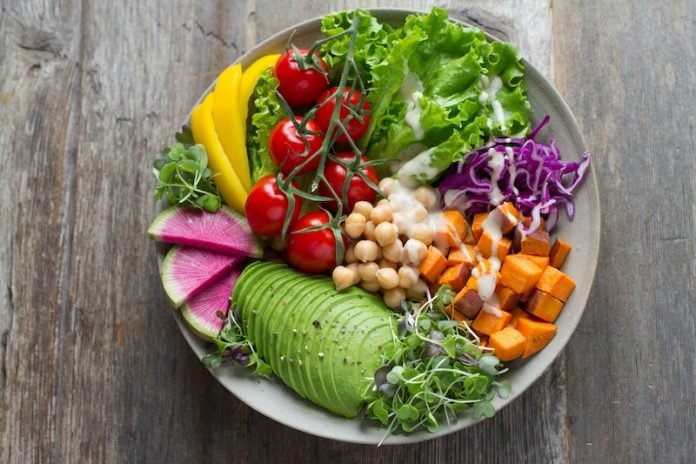
A diet rich in fruits and vegetables and a daily dose of aspirin have one thing in common—both can help prevent colorectal cancer.
Yet scientists have struggled for decades to find the source of their ability to inhibit cancer cell growth.
In a new study, researchers found the answer may lie in the compounds produced when the body breaks down, or metabolizes aspirin, and flavonoids present in fruits and vegetables.
Colon cancer is the third-leading cause of cancer death among Americans.
One in 23 men and one in 25 women will develop cancer of the colon, rectum, or both in their lifetime, according to the American Cancer Society.
The team says only 40 to 50% of aspirin and less than 15% of flavonoids are absorbed in the bloodstream.
Therefore, substantial amounts of aspirin and flavonoids reach the intestines, where host and bacterial enzymes degrade the compounds.
This process results in simpler phenolic acids, specifically hydroxybenzoic acids, or HBAs, that may contribute to colorectal cancer prevention.
Plants also have the capacity to make these metabolites. Fruits and vegetables are loaded with free HBAs, which act as antioxidants and also help the plants fight infections.
Consumption of fruits and vegetables in the diet is another source HBAs.
Identifying the metabolites and the gut bacteria responsible for the degradation of aspirin and flavonoids will help scientists develop probiotics and possibly supplements to help prevent colorectal cancer.
Previously, the team had examined whether the cancer-fighting power might be coming from aspirin and salicylic acid metabolites called dihydroxybenzoic acids.
Testing showed that the aspirin metabolite 2,5-dihydroxybenzoic acid was universally effective in inhibiting the growth in colorectal cancer cell lines.
Another metabolite—2,3-DHBA—inhibited the growth of a line of breast cancer cells, but did not inhibit colorectal cancer cell growth.
That led them to focus on the polyphenolic flavonoids in fruits and vegetables.
Flavonoids are abundant in fruits and vegetables, such as blackberries, blueberries, red grapes, apples and red onions, and in chocolate, tea, and red wine.
They found that 2,4,6-THBA, one of the compounds produced when the body metabolizes or breaks down flavonoids, can inhibit cancer cell growth under specific conditions.
That growth rate reduction likely gives immune cells, such as T cells and natural killer cells, a greater window of opportunity to destroy the cancer cells.
In addition, when a normal cell contains damaged DNA, mutations can occur.
The slowdown in cell proliferation may provide time for the cells to repair their DNA, thereby preventing the accumulation of mutations.
By proposing the metabolite hypothesis, the researchers hope to encourage further studies on the role HBAs play in cancer prevention.
One author of the study is associate professor Jayarama Gunaje of SDSU’s Department of Pharmaceutical Sciences.
The study is published in Molecules.
Copyright © 2020 Knowridge Science Report. All rights reserved.



